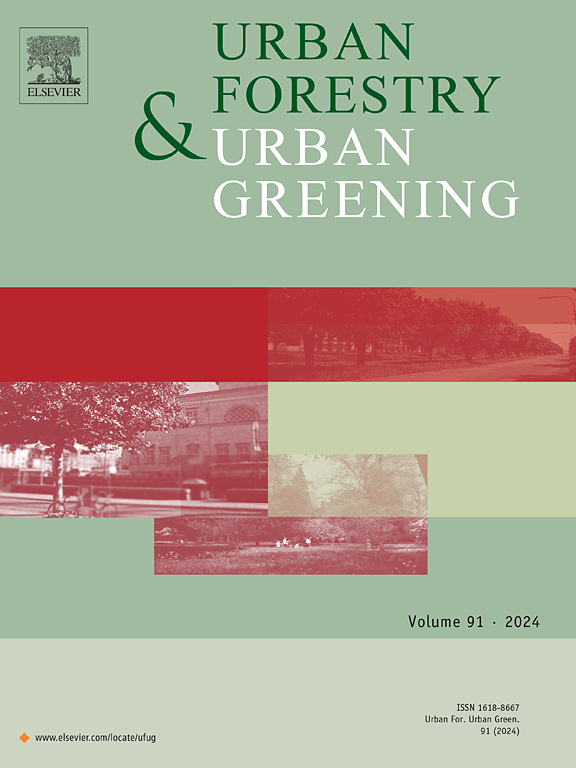基于基准框架的绿色平等国际比较:来自6个全球城市的见解
IF 6.7
2区 环境科学与生态学
Q1 ENVIRONMENTAL STUDIES
引用次数: 0
摘要
虽然公平获得城市绿色空间对改善城市宜居性的重要性已得到公认,但由于先前的研究侧重于单个城市或分散的指标,对绿色平等的全球可比理解仍然难以实现。本研究提出了一个新的基准框架,将可用性、可达性、社会平等和空间不平等整合在一起,从而实现系统的跨城市分析。一项针对六个全球城市的跨国调查揭示了绿色空间提供的程度与在平等方面取得的成果之间的巨大差距。主要研究结果表明,绿色空间可用性的增加并不能保证空间平等。这强调了公平分配的重要性,而不仅仅是数量。该框架将伦敦确定为多维平等的领导者,而东京在公园平等方面表现出色,反映了他们不同的城市历史和治理重点。跨城市的比较表明,改善绿色平等有三种可转移的策略。提出的框架为不同国家背景下的城市可持续性治理比较建立了基于经验的基准。本文章由计算机程序翻译,如有差异,请以英文原文为准。
International comparison of green equality using a benchmarking framework: Insights from 6 global cities
While the importance of equitable access to urban greenspaces in improving urban livability is well recognized, a globally comparable understanding of green equality remains elusive due to the focus of prior studies on individual cities or fragmented indicators. The present study proposes a novel benchmarking framework that integrates availability, accessibility, social equality and spatial inequality, thereby, enabling systematic cross-city analysis. A cross-national investigation of six global cities has exposed a significant disparity between the extent of greenspace provision and the outcomes achieved in terms of equality. Key findings demonstrate that an increase in greenspace availability does not guarantee spatial equality. This underscores the importance of equitable distribution over mere quantity. The framework identifies London as the leading performer in multidimensional equality, while Tokyo demonstrates excellence in park equality, reflecting their divergent urban histories and governance priorities. Cross-city comparisons suggest three transferable strategies for improving green equality. The proposed framework establishes empirically grounded benchmarks for comparative urban sustainability governance across different national contexts.
求助全文
通过发布文献求助,成功后即可免费获取论文全文。
去求助
来源期刊

Urban Forestry & Urban Greening
FORESTRY-
CiteScore
11.70
自引率
12.50%
发文量
289
审稿时长
70 days
期刊介绍:
Urban Forestry and Urban Greening is a refereed, international journal aimed at presenting high-quality research with urban and peri-urban woody and non-woody vegetation and its use, planning, design, establishment and management as its main topics. Urban Forestry and Urban Greening concentrates on all tree-dominated (as joint together in the urban forest) as well as other green resources in and around urban areas, such as woodlands, public and private urban parks and gardens, urban nature areas, street tree and square plantations, botanical gardens and cemeteries.
The journal welcomes basic and applied research papers, as well as review papers and short communications. Contributions should focus on one or more of the following aspects:
-Form and functions of urban forests and other vegetation, including aspects of urban ecology.
-Policy-making, planning and design related to urban forests and other vegetation.
-Selection and establishment of tree resources and other vegetation for urban environments.
-Management of urban forests and other vegetation.
Original contributions of a high academic standard are invited from a wide range of disciplines and fields, including forestry, biology, horticulture, arboriculture, landscape ecology, pathology, soil science, hydrology, landscape architecture, landscape planning, urban planning and design, economics, sociology, environmental psychology, public health, and education.
 求助内容:
求助内容: 应助结果提醒方式:
应助结果提醒方式:


